#Lifeboat Productions
Explore tagged Tumblr posts
Video
youtube
The Silent Revolution in American Economics
I don't think you're expecting what I'm about to say, because I have never seen anything like this in fifty years in politics.
For decades I've been sounding an alarm about how our economy has become increasingly rigged for the rich. I've watched it get worse under both Republicans and Democrats, but what President Biden has done in his first term gives me hope I haven't felt in years. It’s a complete sea change.
Here are three key areas where Biden is fundamentally reshaping our economy to make it better for working people.
#1 Trade and industrial policy
Biden is breaking with decades of reliance on free-trade deals and free-market philosophies. He’s instead focusing on domestic policies designed to revive American manufacturing and fortify our own supply chains.
Take three of his signature pieces of legislation so far — the Inflation Reduction Act, the CHIPS Act, and his infrastructure package. This flood of government investment has brought about a new wave in American manufacturing.
Unlike Trump, who just levied tariffs on Chinese imports and used it as a campaign slogan, Biden is actually investing in America’s manufacturing capacity so we don’t have to rely on China in the first place.
He’s turning the tide against deals made by previous administrations, both Democratic and Republican, that helped Wall Street but ended up costing American jobs and lowering American wages.
#2 Monopoly power
Biden is the first president in living memory to take on big monopolies.
Giant firms have come to dominate almost every industry. Four beef packers now control over 80 percent of the market, domestic air travel is dominated by four airlines, and most Americans have no real choice of internet providers.
In a monopolized economy, corporate profits rise, consumers pay higher prices, and workers’ wages shrink.
But under the Biden, the Federal Trade Commission and the Antitrust Division of the Justice Department have become the most aggressive monopoly fighters in more than a half century. They’re going after Amazon and Google, Ticketmaster and Live Nation, JetBlue and Spirit, and a wide range of other giant corporations.
#3 Labor
Biden is also the most pro-union president I’ve ever seen.
A big reason for the surge in workers organizing and striking for higher wages is the pro-labor course Biden is charting.
The Reagan years blew in a typhoon of union busting across America. Corporations routinely sunk unions and fired workers who attempted to form them. They offshored production or moved to so-called “right-to-work” states that enacted laws making it hard to form unions.
Even though Democratic presidents promised labor law reforms that would strengthen unions, they didn’t follow through. But under Joe Biden, organized labor has received a vital lifeboat. Unionizing has been protected and encouraged. Biden is even the first sitting president to walk a picket line.
Biden’s National Labor Relations Board is stemming the tide of unfair labor practices, requiring companies to bargain with their employees, speeding the period between union petitions and elections, and making it harder to fire workers for organizing.
Americans have every reason to be outraged at how decades of policies that prioritized corporations over people have thrown our economy off-keel.
But these three waves of change — a worker-centered trade and industrial policy, strong anti-monopoly enforcement, and moves to strengthen labor unions — are navigating towards a more equitable economy.
It’s a sea change that’s long overdue.
432 notes
·
View notes
Text
Making Sebaciel Love Prompts and Ideas
1. After a particularly contentious case the queen orders Ciel into hiding along with Seb. The other servants remain behind to protect the manor. The hideaway is a beautiful mountain chalet in Switzerland, far from any trouble greater than escaped sheep. Forced into what is essentially a vacation, Ciel and Seb look for ways to entertain themselves including but not limited to: flirtatious chess matches, storytelling, a little bit of gardening, accidentally starting scandals in the sleepy town nearby, and a truly gratuitous amount of sex.
2. Seb wakes adult!Ciel with a blowjob
3. Seb slowly changing into a human against his will, slowly losing his demonic powers and abilities. Seb slowly becoming more imperfect (dropping things, forgetting stuff, becoming confused, etc) and unable to keep up his former level of productivity. Seb gaining emotions that he has no words for. Seb becoming increasingly afraid that Ciel will fire him and tell him to get lost.
4. Ciel going through the horrors of puberty: painful growth spurts, acne, needing to shave, becoming irrationally horny. Like seeing Seb doing something completely innocuous and suddenly having a boner over it. Wet dreams every other night and no way to hide it. Voice cracking at the most inopportune moments. Tripping over his own two feet as his body changes but getting caught by Seb who pulls him against his broad manly chest and asks in a low seductive voice if he’s okay (bonding with Mey Rin over his crush except it’s not a crush he’s deeply, irrevocably in love). Seb dealing with the horrors of a contractor going through puberty (and being confused why he still finds this increasingly awkwardly shaped boy cute).
5. Wing!fic!!! Seb needs Ciel to help him groom his wings. Ciel taking it super seriously because he’s always secretly wanted a way to be useful to Seb and also this is a way to learn more about the demon. Ciel finding all the most sensitive spots that make Seb moan and exploiting them. Ciel keeping a few of the pretty feathers that he plucked. Seb being in this incredibly vulnerable position with Ciel and yet feeling completely safe (and confused why he trusts Ciel so much because a demon shouldn’t be able to trust like this).
6. Crypto-sexologist!Ciel experimenting on Seb to see how many times the demon is capable of coming. Seb agreeing to this experiment because he’s half curious himself but more because he has A Thing for this human and he’s hoping to seduce him. Seb being a little upset that the intimate and vulnerable experiment is intimate and vulnerable. Ciel putting Seb in a fucking machine for expediency but being unable to resist coming over and lending a hand. Seb becoming increasingly fucked out as the experiment goes on until he eventually falls asleep. Ciel turning the machine off, cleaning the demon up, and carrying him to bed.
7. (Inspired by Ena333333’s fancomic) Queen sends Ciel to the US for a mission, meaning another boat trip. Once again the ship sinks, this time due to a rogue wave. Seb taking Ciel into himself to protect him and also because not a single lifeboat survived and Seb needs to swim all the way to the nearest land. Seb arriving in Iceland and deciding to keep Ciel inside a bit longer, finding that he likes being “pregnant” with his little contractor (the feeling of his Ciel moving about inside him is strangely erotic). Seb rubbing his “baby bump” (it’s not that big but it’s still a bump) and crooning demonic lullabies. Seb finding a safe place to “birth” Ciel (it’s a process) and holding him after, humming one of the lullabies, both of them exhausted. Ciel humming the lullaby back. Bonus points if they fuck while still attached by the umbilical cord.
8. Adult!Ciel growing up to have the biggest meat that Seb has ever seen. Seb getting a taste and immediately becoming addicted. He needs to bounce on it or suck it every day otherwise he can’t function. Seb utterly obsessed with Ciel’s massive cock.
9. Seb finding reincarnated!Ciel and discovering that the boy tattooed the contract seal onto himself despite having no memories of his previous incarnation.
10. Ciel refusing to have his portrait done/taken unless Seb is in the picture with him.
Bonus!
11. Sebaciel casual sex! Sebaciel talking about ordinary stuff while fucking. Sebaciel giggling and cracking jokes while inside each other, loving how the other feels when laughing. One or the other not finishing, not because they weren’t satisfied, but just… because and both are cool with that and happy with the intimacy they share.
21 notes
·
View notes
Text
Twisted Wonderland x Heathers
This one is the one I was personally very excited for! Heathers was my favorite musical growing up, and it was the show that made me a theater kid.
As always, this is less of an actual AU and more of who I'd cast if NRC did a production.
Veronica Sawyer: Riddle Rosehearts
I debated on this a little bit, but I can't think of anyone else who could fit this role better. He's sarcastic and witty, but also a bit niave about how the world works, much like Veronica. I think he'd be good at playing Veronica as her mental state deteriorates, and I lowkey think it'd be funny to watch him freak out over hearing "Dead Girl Walking" for the first time. He would kill it of course, but it would take him a while to be fully comfortable with it. I also think his dynamic with other characters in-game suits Veronica and her dynamics surprisngly well.
Jason J.D. Dean: Floyd Leech
This is mostly just me feeding the FloRid fans. I don't ship them myself, but I understand and I see the vision. As for him as J.D., I think it makes sense. J.D. goes through a lot of emotions throughout the show, and I think Floyd would be good at portraying them. He has an amazing voice and I know he would kill all of the songs. Plus, he's manic and insane, and I just know he would do so well in this role.
Heather Chandler: Vil Schoenheit
This was a no-brainer. He's a diva, he's an icon, and he's a legend. I love the idea of him haunting Riddle during the show, and he would look so good in her death robe. Of course, he has a stunning voice that suits Chandler's songs as well. Chandler is undoubtedly the star of the show and he would soak in every ounce of spotlight possible. It's not the biggest role in the show and she mostly stands around after she dies, but I know Vil could pull it off better than anyone.
Heather McNamara: Cater Diamond
I NEED Cater singing "Lifeboat" in my life immediately. He fits the preppy, slightly air-headed character who's actually deeply depressed and anxious perfectly. If anyone could understand her character, I think it would be Cater. Plus, his dynamics with both Riddle and Vil fit the role as well I think. He admires Vil a lot and has a tendency to suck up to him, which is something McNamara does with Chandler. In a similar way, Riddle and Cater have a surprisingly close friendship, much like McNamara and Veronica do by the end of the show.
Heather Duke: Azul Ashengrotto
I have had this thought stuck in my brain for months and I can finally get it out. Azul would make such a good Duke, especially if they do the West End version where she gets her solo song. Azul would play her so well, especially once Chandler dies and Duke reveals her true nature. As an angstier note, he has a lot of the same insecurties that Duke has, especially the body image issues. I think he could tap into that aspect of the role well.
Martha Dunnstock: Kalim Al-Asim
This just makes sense in my brain. He's sweet and kind, and I can see him and Riddle having a sweet dynamic. I don't fully buy into him having a crush on a jock like Ram, but I think he could pull it off. Also, the thought of Kalim singing "Kindergarden Boyfriend" would legitimately put me into a coma. I also think that, like Martha, Kalim is a lot sadder than people think he is, but they both hide it behind optimism and whimsey.
Ram Sweeney/Kurt Kelly: Ace Trappola/Deuce Spade
I decided to put these two together because they can honestly be interchangable. If I had to designate specific roles, Ace would be Ram and Deuce would be Kurt. I think they would play off of each other well and I could see them being super over the top. I specifically want them to sing "Blue" because I don't think they'd enjoy singing "You're Welcome" very much. I also think they'd be hilarious during "Big Fun" and their death scenes.
Bill Sweeney/Big Bud Dean/Coach Ripper: Ashton Vargas
He fits these roles so well and it has me absolutely rolling. Him singing "Dead Gay Son" would be so iconic. Him as J.D.'s dad would be iconic. Even him as the coach would be iconic. Vargas was built for these roles. I rest my case.
Paul Kelly/Mr. Sawyer/Principal Gowan: Divus Crewel
HEAR ME OUT PLEASE. Does he fit any of these roles? No. Would he particularly enjoy playing any of these roles? No. Would he be absolutely insane during "Dead Gay Son"? Absolutely. Plus, I'm also hear to spread my Crewel x Vargas agenda.
Mrs. Sawyer/Pauline Fleming: Lilia Vanrouge
My favorite thing is putting Lilia in the silly teacher roles. He would absolutely kill "Shine a Light" like no one else could. Lilia has the zany, slightly off-putting vibe Fleming has, and he could play into that well. I know he would go absolutely crazy with this role and just amp everything up to 110%.
#twisted wonderland#twst#twisted wonderland au#twst au#heathers#heathers the musical#heathers au#riddle rosehearts#veronica sawyer#floyd leech#jason dean#vil schoenheit#heather chandler#cater diamond#heather mcnamara#azul ashengrotto#heather duke#kalim al asim#martha dunnstock#ace trappola#ram sweeney#deuce spade#kurt kelly#divus crewel#ashton vargas#lilia vanrouge
25 notes
·
View notes
Note
alright then! infodump about a movie that you want to tell people about!!
Uh.... Hitchcock's surprisingly controversial film Lifeboat (1944) is an excellent example of a limited set. The characters are confined to the lifeboat for the duration of the film, and careful propbuilding and cinematography makes us believe they are actually on the ocean when the set used for the production was actually about the size of the average above-ground pool. The film's controversy comes from portaying the nazi who boards the lifeboat as intelligent and manipulative instead of just being a violent, mustache-twirling brute. The film's characters represent the interwar dealings with Nazis by various nations and political inclinations. Only one man aboard outright refuses to work with/protect a nazi, but the others decide to hear him out and take him in because "it's a violation of human rights to let him drown" and all that. For the flaws it has, it's a surprisingly progressive piece of cinema, thanks in large part to Canada Lee's refusal to portray his character as the "yes'sir, no'sir" servile stereotype written in the original script.
26 notes
·
View notes
Text
Titanic Scan Reveals Ground-Breaking Details of Ship's Final Hours!
A Detailed Analysis of A Full-Sized Digital Scan of The Titanic Has Revealed New Insight Into The Doomed Liner's Final Hours.
— Rebecca Morelle, Science Editor | Alison Francis, Senior Science Journalist | 8 April 2025

The Digital Scan Shows the Bow Sitting Upright on the Sea Floor
The exact 3D replica shows the violence of how the ship ripped in two as it sank after hitting an iceberg in 1912 - 1,500 people lost their lives in the disaster.
The scan provides a new view of a boiler room, confirming eye-witness accounts that engineers worked right to the end to keep the ship's lights on.
And a computer simulation also suggests that punctures in the hull the size of A4 pieces of paper led to the ship's demise.

The Stern of the Ship, Which Broke Off From the Bow, is Heavily Damaged
"Titanic is the last surviving eyewitness to the disaster, and she still has stories to tell," said Parks Stephenson, a Titanic analyst.
The scan has been studied for a new documentary by National Geographic and Atlantic Productions called Titanic: The Digital Resurrection.
The wreck, which lies 3,800m down in the icy waters of the Atlantic, was mapped using underwater robots.
More than 700,000 images, taken from every angle, were used to create the "digital twin", which was revealed exclusively to the world by BBC News in 2023.
Because the wreck is so large and lies in the gloom of the deep, exploring it with submersibles only shows tantalising snapshots. The scan, however, provides the first full view of the Titanic.
The immense bow lies upright on the seafloor, almost as if the ship were continuing its voyage.
But sitting 600m away, the stern is a heap of mangled metal. The damage was caused as it slammed into the sea floor after the ship broke in half.

The Glass in a Porthole May have been Broken as It Scraped Past the Iceberg
The new mapping technology is providing a different way to study the ship.
"It's like a crime scene: you need to see what the evidence is, in the context of where it is," said Parks Stephenson.
"And having a comprehensive view of the entirety of the wreck site is key to understanding what happened here."
The scan shows new close-up details, including a porthole that was most likely smashed by the iceberg. It tallies with the eye-witness reports of survivors that ice came into some people's cabins during the collision.

A Boiler Room is at the Back of the Bow Where the Ship has Split in Two
Experts have been studying one of the Titanic's huge boiler rooms - it's easy to see on the scan because it sits at the rear of the bow section at the point where the ship broke in two.
Passengers said that the lights were still on as the ship plunged beneath the waves.
The digital replica shows that some of the boilers are concave, which suggests they were still operating as they were plunged into the water.
Lying on the deck of the stern, a valve has also been discovered in an open position, indicating that steam was still flowing into the electricity generating system.
This would have been thanks to a team of engineers led by Joseph Bell who stayed behind to shovel coal into the furnaces to keep the lights on.
All died in the disaster but their heroic actions saved many lives, said Parks Stephenson.
"They kept the lights and the power working to the end, to give the crew time to launch the lifeboats safely with some light instead of in absolute darkness," he told the BBC.
"They held the chaos at bay as long as possible, and all of that was kind of symbolised by this open steam valve just sitting there on the stern."

A Circular Valve - in the Centre of this Image - Is in an Open Position
A new simulation has also provided further insights into the sinking.
It takes a detailed structural model of the ship, created from Titanic's blueprints, and also information about its speed, direction and position, to predict the damage that was caused as it hit the iceberg.
"We used advanced numerical algorithms, computational modelling and supercomputing capabilities to reconstruct the Titanic sinking," said Prof Jeom-Kee Paik, from University College London, who led the research.
The simulation shows that as the ship made only a glancing blow against the iceberg it was left with a series of punctures running in a line along a narrow section of the hull.

A Simulation Calculated the Iceberg Caused a Thin Line of Small Gashes on the Hull
Titanic was supposed to be unsinkable, designed to stay afloat even if four of its watertight compartments flooded.
But the simulation calculates the iceberg's damage was spread across six compartments.
"The difference between Titanic sinking and not sinking are down to the fine margins of holes about the size of a piece of paper," said Simon Benson, an associate lecturer in naval architecture at the University of Newcastle.
"But the problem is that those small holes are across a long length of the ship, so the flood water comes in slowly but surely into all of those holes, and then eventually the compartments are flooded over the top and the Titanic sinks."
Unfortunately the damage cannot be seen on the scan as the lower section of the bow is hidden beneath the sediment.

It Will Take Many Years to Fully Scrutinise the 3D Scan
The human tragedy of the Titanic is still very much visible.
Personal possessions from the ship's passengers are scattered across the sea floor.
The scan is providing new clues about that cold night in 1912, but it will take experts years to fully scrutinise every detail of the 3D replica.
"She's only giving her stories to us a little bit at a time," said Parks Stephenson.
"Every time, she leaves us wanting for more."
#Science & Environment#RMS Titanic#Sinking of the Titanic#Titanic Scan#Ground-Breaking Details#Ship's Final Hours#Detailed Analysis#Full-Sized Digital Scan#Revealed New Insight#Doomed Liner's Final Hours#British Broadcasting Corporation (BBC)#Science
9 notes
·
View notes
Text

hii! this is my studyblr where I'm trying to be more productive and study more. I've only been lurking before but I’m going to be committed this school year (and hopefully in future)! currently looking for studyblrs to follow!
#lenniedoesthings for original posts
About me °
♤ Lennie (she/her)
♤ Chinese
♤ dark/chaotic academia
♤ 3rd year in Scotland
♤ enfj-t
Study °
♤ English (fluent), Chinese (native), French (A2)
♤ I love to draw and write, coding is my passion. Playing with python is what you'll usually find me doing in cafés.
♤ currently doing 100 days of productivity!
Goals °
♤ prolong my duolingo streak
♤ workout at least 3 times a week
♤ be consistent with my debate work
More about me °
♤ favorite books are If We Were Villans, The da Vinci Code, the stranger on the lifeboat, Daughter of Fortune
♤ absolute morning person and coffee addict
♤ english over humanities over science
♤ favorite musicians are cigarettes after sex, fuji kaze, lana del rey, hozier (these change all the time)
Studyblrs to follow °
@cards-of-rose (best study tips and cute pink aesthetic), @cuddiecore (her posts always make me feel motivated), @a-fox-studies (blue aestheic study diaries), @olderacademic (best seasonal study posts ever), @frenchiepal (like study with me but better), @student-by-day (motivating studyblog content), @studentbyday (has the best study diary)

Anyways, I hope we motivate each other on here. All pics are mine.
#dark academia#student#light academia#student life#study blog#studyblr#studying#studyinspo#studyspo#academia#study#self improvement#study movitation#aesthetic#aesthetic study#high school#100 days of studying#100 days of productivity#study aesthetic#that girl#hell is a teenage girl#study tips#study notes#study inspiration#school#chaotic academia#dark academia things#dark acadamia aesthetic#light acadamia aesthetic#lenniedoesthings
102 notes
·
View notes
Text
Tallulah Bankhead - The Wild Child
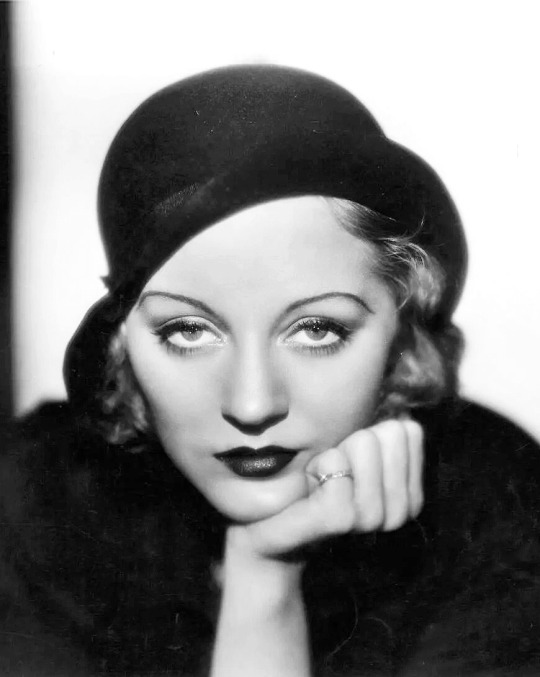


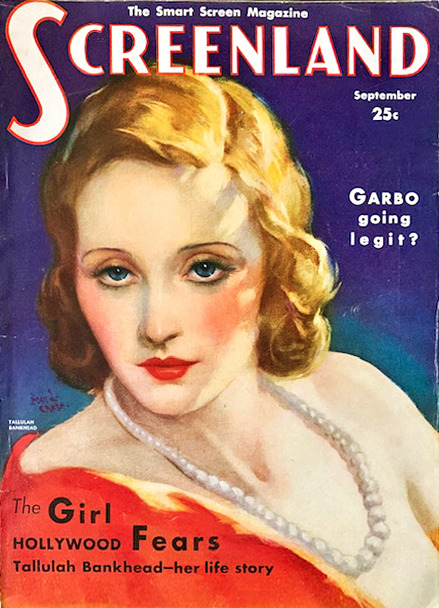
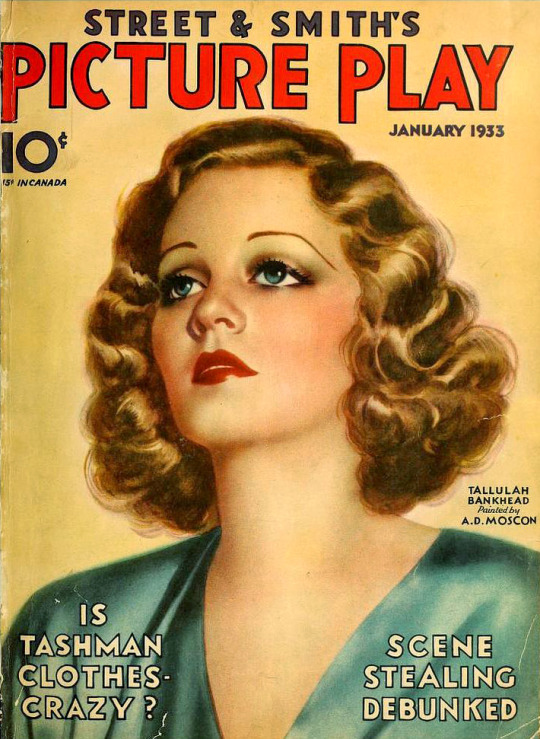
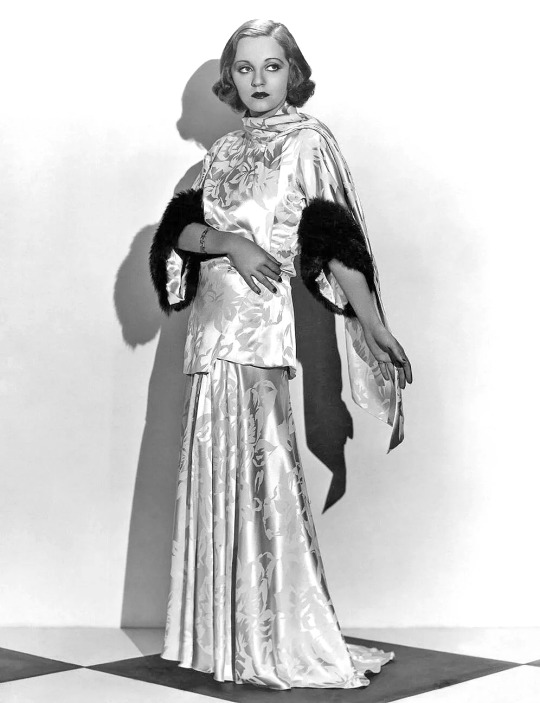

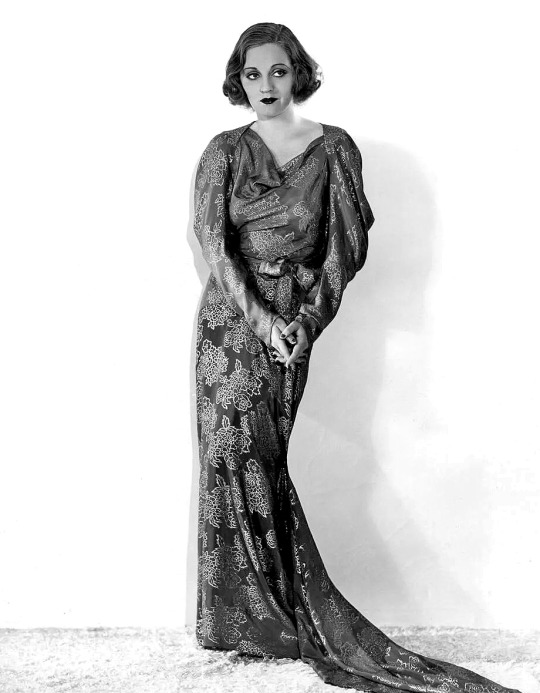
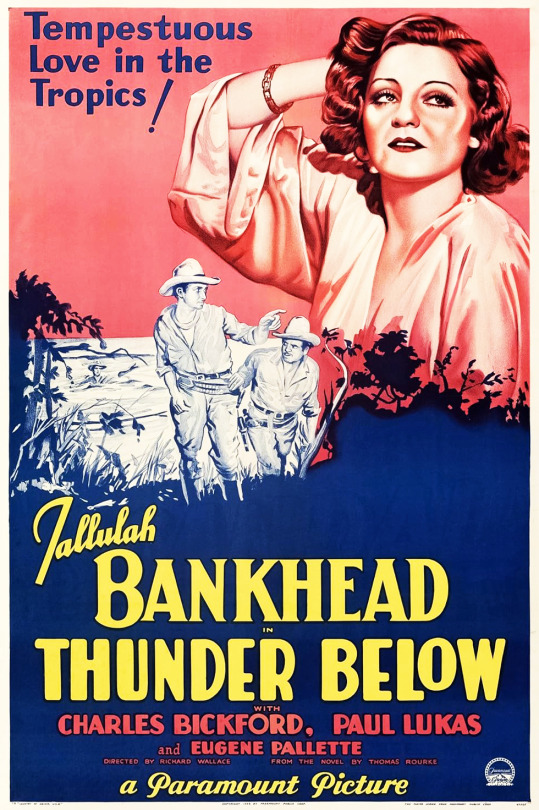
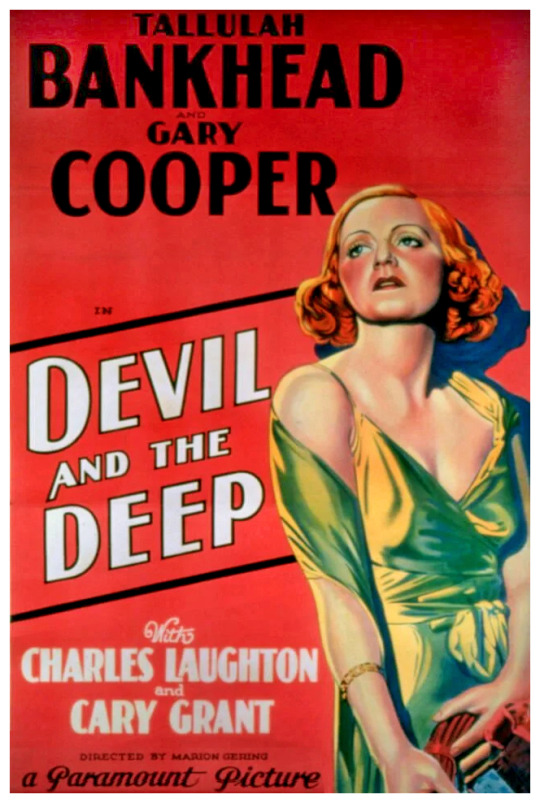
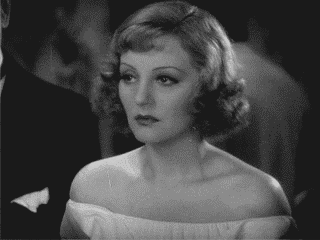
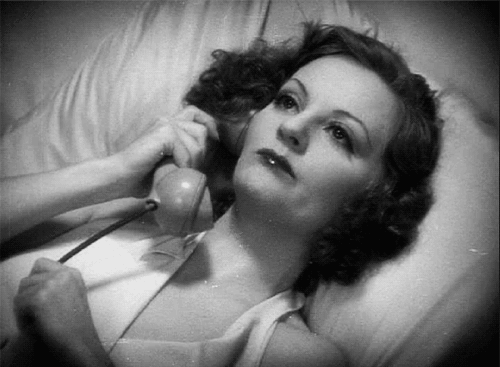
Tallulah Brockman Bankhead (born in Huntsville, Alabama on January 31, 1902) was an American actress, primarily of the stage, but has also appeared in several prominent films, including an award-winning performance in Alfred Hitchcock's Lifeboat (1944). Known as "The Wild Child," her penchant for living life on her own terms, defying societal conventions and hard partying sometimes preceded her talent.
Bankhead was a member of the Bankhead and Brockman family, a prominent Alabama Democratic political family with Irish roots. Her grandfather and her uncle were U.S. senators, and her father was Speaker of the House of Representatives. She was mostly raised in the family estate named "Sunset" in Jasper, Alabama.
Discovering at an early age that theatrics gained her the attention she desired, she wanted to be a performer. Thus, at 15, she submitted her photo to Picture Play, which was conducting a contest, and was awarded a trip to New York plus a movie part based on their photographs. She soon realized her place was on stage rather than screen. After several years in Broadway, Bankhead moved to London, where she found fame and critical acclaim in the West End.
In 1931, under contract to Paramount Pictures she returned to the U.S. and played in a series of roles as a femme fatale in films in films like George Cukor's Tarnished Lady (1931).
Going back to Broadway, Bankhead worked steadily in a series of plays, including brilliant portrayals of Regina Giddens in Lillian Hellman's The Little Foxes (1939) and Sabina in Thornton Wilder's The Skin of Our Teeth (1942). Because of her continued success, she was able to command 10 percent of the gross of the play and was billed larger than any other actor in the cast. She also continued to appear in a handful of films, TV shows, and radio shows. Though Tallulah Bankhead's career slowed in the mid-1950s, she never faded from the public eye.
A long time smoker, she died in Manhattan at age 66 due to pleural double pneumonia.
Legacy:
Won the Variety Award for Best Actress of the Year twice: The Little Foxes (1939) and The Skin of Our Teeth (1942)
Won the New York Drama Critics Award for Best Actress in a Production for The Skin of Our Teeth (1942)
Won the New York Film Critics Circle Award for Best Actress for Lifeboat (1944)
Nominated for a Tony Award for Best Actress in a Play for Midgie Purvis (1961)
Has had a cocktail at the Rivoli Bar in the Ritz London called "The Tallulah," which is served in Christian Louboutin stiletto
Is the first white woman to be featured on the cover of Ebony magazine
Is one of the very few film actresses and the only stage actress to have a cover on both Time and Life
Honored as one of the 10 most remarkable women in London in 1928
Served as inspiration for the character Margo Channing in All About Eve (1950) and Cruella De Vil in Walt Disney Pictures' One Hundred and One Dalmatians (1961)
Is one of the original inductees in the American Theater Hall of Fame in 1972
Inducted in the Alabama Women's Hall of Fame in 1981
Is the main character of Looped, a Broadway play by New York writer Matthew Lombardo, which premiered in 2007
Has a star on the Hollywood Walk of Fame at 6141 Hollywood Blvd for motion picture

#Tallulah Bankhead#Tallulah#The Original Wild Child#Cruella#Cruella De Vil#Silent Films#Silent Era#Silent Film Stars#Golden Age of Hollywood#Film Classics#Old Hollywood#Vintage Hollywood#Hollywood#Movie Star#Hollywood Walk of Fame#Walk of Fame#Movie Legends#movie stars#1900s#28 Hollywood Legends Born in the 1900s
52 notes
·
View notes
Note
i'm sorry you aren't able to pay for watcher's new service. it was a tough decision for me too - i'm unemployed right now and had to look at my savings and decide to skip on buying a few things - but in the end i chose to support them. there are fans sharing accounts and gifting subs. some people in the fandom want to help with solutions but you can't hear them over everyone blaming watcher for suddenly being in the 1% somehow?? (they're not) this is still in beta mode so we all need to take a breath and see what they announce after seeing the feedback. but watcher didn't ruin the economy and make it so hard for people to get welfare and help - you need to contact some government officials for that - not shane's wife
You are fundimentally missing the point. And why are you feeding a problem when they have clearly show they dont respect their fans with their silence, and their employees and spouses snide comments.
The watcher hate train that you think is clouding my thoughts simply isnt. I look at other fans to see if i my perception is more then just automatic frustration. And its not. I think alot. I get heated when i feel theres injustice. But i think through every single thing in this situation for flaws in my own logic because i know people like you will say i am blowing out of proportion. dont patronize me with those arguements.
Yeah governement stuff isnt their fault but they know where the world is. Or atleast they should and they are choosing to bleeding their fans dry. I never said they were the 1% but they are rich. Being rich doesnt automatically put you in the 1 percent but it does give you a leg up to being safe.
I took a breath. I took a whole breath today and lived my life on an extremely small trip on a train. To get free samples from an event with a discounted ticket. I bought a single nice thing that i wanted and for the first time in three days i didnt think about this shit show.
I wanted to support them but seeing as they dont care that they are making
1. A bad decision that everyone except people like you can see
2. Using a base platform that is notoriously unfriendly to creators
3. Didnt respect their fans enough to do market research and give us a finished product or a timeline for things moving forward
4. Act like they are drowning while they are on a yacht. And show that yacht to the people they kicked out of a lifeboat. Then blame us for needing to get a slightly smaller yacht. (This is an analogy)
Its not the same.
3 shows i like is not worth. 6 dollars.
I dont want Sara rubin's fucking help. I am saying she is showing the reality. That these people dont care. Its a common fact of todays world that very few youtubers actually care. That you giving them 6 dollars for a thing that has never worked in the long term unless years of effort and research is put into it. And you are on unemployment? I dont know.
You are the ones that dont see the reality.
But like i said in my post. I respect that humans can do whatever they want. I just think you should think and ask questions and when you dont get clear answers. Wonder why.
All of this mess is something you need to watch before you jump.
I simply chose to step away from the cliff because i saw sharks in the water.
EDIT: some parts in this feel unfinished. I am tired and working on very little sleep because of how my brain has chosen to process this situation. I wont update this post with corrections unless someone can give me a hard reason to.
#the vessel speaks#watcher#watcher entertainment#wearewatcher#feeding the beast that bit you wont stop it from biting you again
28 notes
·
View notes
Text
Heathers Review (Pelican Productions) - 12/09/2024
Stepping into Heathers, I knew we were in for a wild ride, but I wasn’t prepared for the sheer power and presence of this cast.
Tayla Prime as Heather Chandler was an absolute force of nature. She dominated the stage with so much authority that I found myself genuinely intimidated from the audience! I wouldn’t dare cross her Chandler—if I were in Westerberg High, I’d be running for the hills. It was a performance that oozed confidence and power, embodying the iconic ‘mythic b****’ perfectly.
Teagan Garvey as JD had some great moments, especially in the beginning where he played up JD’s charm to a T. His descent into madness was compelling, with Garvey really showcasing the complexity of the role. There were a few moments where his vocals fell a little flat, but overall, he was stellar and brought a lot to the table.
Then there’s Samantha Keough as Veronica—wow. I have never been so in awe of a voice. She didn’t just deliver; she owned the character, adding her unique vocal flair rather than just doing a by-the-numbers version of Veronica. I’d go so far as to say she’s one of the best Veronicas I’ve seen in Adelaide!
Caitlin Laventure as Heather Duke was a standout for me. Talk about a triple threat—the dancing, the singing, the acting, all flawlessly executed. I honestly can’t believe she isn’t already a staple in the professional scene. It was hard to keep my eyes off her whenever she was on stage.
Lily Horton-Stewarts Heather McNamara was another highlight. "Lifeboat" was a real emotional journey, and she took the audience right along with her. I could feel her anxiety bubbling under the surface, and when it broke, it was powerful. A beautifully crafted performance.
And then, Darcie Yelland as Martha—my heart. She brought so much warmth and life to Martha that you just wanted to give her a hug. By the time "Kindergarten Boyfriend" hit, I was a complete mess. It’s a challenging role to pull off, but Yelland absolutely nailed it.
I have to mention my favorite duo of the night: Zach Bartlett and Freddie Windle as Kurt and Ram. These two bounced off each other perfectly, delivering the humor and energy the roles require. They’re an iconic duo, and I truly hope to see them working together in the future!
Hannah Brown as Ms. Fleming brought so much life to the ditzy teacher role. You could really sense how much she cared about her News Crew… which made for a lot of laughs. I thoroughly enjoyed watching her performance!
The song of the night had to be ‘My Dead Gay Son’. The dads, Leo Sage and Hanno de Klerk, absolutely nailed it! The audience couldn’t stop clapping, and we just wanted more. Well done to both actors for a standout performance.
The ensemble deserves massive credit as well. The choreography and vocals were tight and well-constructed, with each piece fitting together like a perfectly synchronized puzzle. You could just feel the joy radiating off the entire cast, which gave the performance an extra spark of magic.
As for the set design, it was nothing short of spectacular. I loved the concept—especially how the brick wall split apart, and the two-story levels made the stage feel dynamic and immersive. I found myself wondering how long it took to build because it was just so beautifully crafted.
The lighting was also brilliantly executed. I loved how they played within the scheme. My favorite moment had to be during the bomb sequence, where the stage transformed into what looked like a disco ball for just a moment, symbolizing the explosion—it was an inventive and effective choice.
Sound was mostly on point. While there were a few minor issues with mics not being turned on in time or some effects coming in late, the sound mix overall was fantastic. Missing a couple of lines didn’t take away from how well everything sounded.
Big shoutout to the creative team. You’ve put on an amazing rendition of Heathers, and I’m excited to see what you all work on next. Overall, this cast for Heathers knocked it out of the park. From powerhouse performances to stellar ensemble work, this show was a treat from start to finish.

11 notes
·
View notes
Text
Six Sentence Sunday
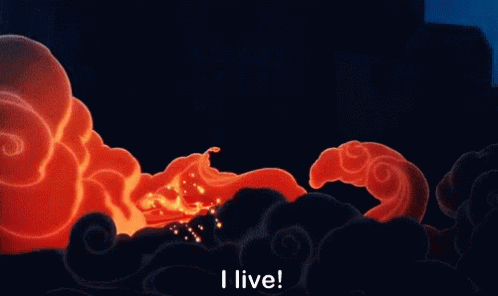
Yes, 2023 is drawing to a close. Yes, I have been lurking for (I think) months at this point. Yes, I have been writing. Thank you so much to everyone who has been tagging me in recent weeks/months, I'm so sorry I haven't been interacting as much with you all as I have in the past. In the last few months I just haven't had the social battery to do much more than just lurk in comments sections, and sometimes not even that (autistic burnout is not fun, can confirm, 0/10, do not recommend).
But I'm back, and here's hoping 2024 is a good year, and one that's productive where writing is concerned! 2023 was a pretty good year for me; I published my first fic (which was also the first bit of writing I've properly published anywhere!), and I sent off my first query for ASR! To a proper literary agent! Like ... WHAT?! I still can't believe it!
As for the end of this year, let's get one last hurrah in for the year of 2023 with the final WIPsday of the year. Chapter 11 of Trails is coming, it just needs to be edited. Here's an unedited snippet of the chaos you have to look forward to.
“When I tell you to, run like fuck,” Fiona tells us, clicking the hammer back on her revolver. “How many more rounds have you got?” Penny asks. “Enough to take down half the idiots aboard this ship.” Fiona takes up a position on one side of the hatch, her finger on the trigger guard. As she moves I hear the tell tale clink of a box of rounds, and see the outline of it in her trouser pocket for the first time. “Fiona,” I caution. “Maybe we should try to do this quietly.” “No chance of that, boyo. I’m killing as many of these fuckers as I can before we go overboard.” “Fiona,” I try again, but she isn’t listening. “The lifeboat is on the right side,” Penny whispers to us, eyeing Fiona out of the corner of her eye. We’ll lower you into it, Baz, then follow.” I guess I don’t have much of a say in this, as Snow is literally the only reason I’m still standing right now. I nod, and Penny creeps up the stairs behind Fiona, who does so about as well as a bull in a china shop. She storms out onto the deck and I’m actually surprised by how long it takes for bullets to start flying. There’s a solid fifteen seconds or so, which allows Bunce to make it up the stairs and gesture for us to follow, before an alarm is raised and Fiona does what she does best: cause chaos.
This hiatus with Trails wasn't planned, but work and general holiday madness got in the way of the tentative schedule my beta's and I had. New Year, fresh start, once more into the fray, as they say. I hope you can join us for this fics future shenanigans.
Tagging for the new year: @artsyunderstudy @aristocratic-otter @bazzybelle @blackberrysummerblog @bookish-bogwitch @cattocavo @chen-chen-chen-again-chen @cosmicalart @cutestkilla @dragoneggos @erzbethluna @ebbpettier @fatalfangirl @frjsti @henreyettah @hushed-chorus @ic3-que3n @ileadacharmedlife @ivelovedhimthroughworse @krisrix @larkral @letraspal @martsonmars @nightimedreamersworld @orange-peony @prettylightsbigcity @palimpsessed @phoxphyre @raenestee @shrekgogurt @skeedelvee @stardustasincocaine @subparselkie @that-disabled-princess @theearlgreymage @wellbelesbian @you-remind-me-of-the-babe
#snowbaz#snowbaz fanfiction#the trails we blaze#the road to el dorado!au#cotta2023#2024#writing in 2024#roll on the new year#happy new year everyone!#ASR#A Survivor's Revenge#original fiction#watch this space
46 notes
·
View notes
Text
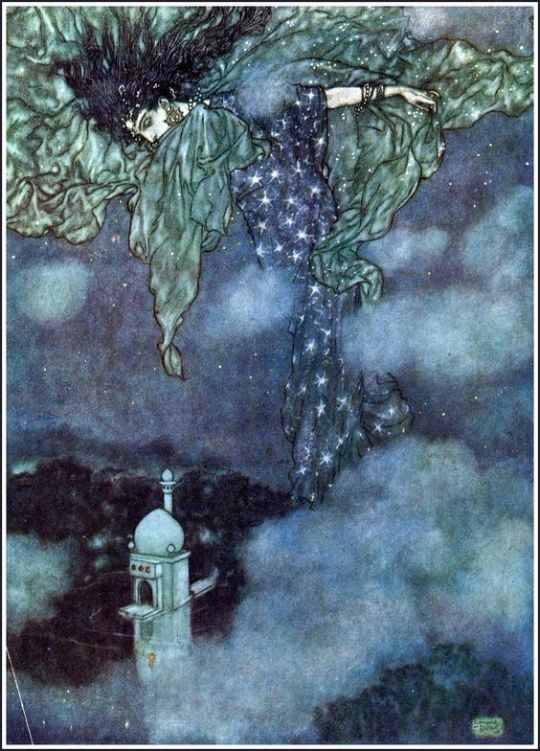



What’s your story? It’s all in the telling. Stories are compasses and architecture; we navigate by them, we build our sanctuaries and our prisons out of them, and to be without a story is to be lost in the vastness of a world that spreads in all directions like arctic tundra or sea ice. To love someone is to put yourself in their place, we say, which is to put yourself in their story, or figure out how to tell yourself their story.
Which means that a place is a story, and stories are geography, and empathy is first of all an act of imagination, a storyteller’s art, and then a way of traveling from here to there. What is it like to be the old man silenced by a stroke, the young man facing the executioner, the woman walking across the border, the child on the rollercoaster, the person you’ve only read about or the one next to you in bed?
We tell ourselves stories in order to live, or to justify taking lives, even our own, by violence or by numbness and the failure to live, tell ourselves stories that save us and stories that are the quicksand in which we thrash and the well in which we drown, stories of justification, of accursedness, of luck and star-crossed love, or versions clad in the cynicism that is at times a very elegant garment. Sometimes the story collapses, and it demands that we recognize we’ve been lost, or terrible, or ridiculous, or just stuck; sometimes change arrives like an ambulance or a supply drop. Not a few stories are sinking ships, and many of us go down with these ships even when the lifeboats are bobbing all around us.
In The Thousand and One Nights, known in English as The Arabian Nights, Scheharazade tells stories in order to keep the sultan in suspense from night to night so he will not kill her. The premise of the vast thicket of stories is that the sultan caught his queen in the embrace of a slave and decided to sleep with a virgin every night and slay her every morning so that he could not be cuckolded again. Scheherazade volunteered to try to end the massacre and did so by telling him stories that carried over from one night to the next for nights that stretched into years.
She spun stories around him that kept him in a cocoon of anticipation from which he eventually emerged a less murderous man. In the course of all this telling she bore three sons and delivered a labyrinth of stories within stories, stories of desire and deception and magic, of tranformation and testing, stories in which the action in one freezes as another storyteller opens his mouth, pregnant stories, stories to stop death.
Do you tell your story or does it tell you? Often, too often, stories saddle us, ride us, whip us onward, tell us what to do, and we do it without questioning. The task of learning to be free requires learning to hear them, to question them, to pause and hear silence, to name them and then to become the storyteller. Those ex-virgins who died were inside the sultan’s story; Scheharazade, like a working-class hero, seized control of the means of production, and talked her way out.
--The Faraway Nearby (2012)
[Rebecca Solnit]
#Storytellers#Scheharazade#The Arabian Nights#stories#The Faraway Nearby#Rebecca Solnit#quotes#words and writing
35 notes
·
View notes
Text
Capital socially binds, represses and harnesses the material available for production including labour power before it engages it. The social category of control as such and the power platforms attendant upon the actual or ideological standing of the working classes precede the formation of prices. Making the Arab working classes more insecure, more vulnerable in the forms of their political organisation, means more profits accruing to central capital--in one facet of this one may envisage that the power-setting influences prices. The pittance spent in money form on control or destabilisation, whether it is the financing of Islamic fundamentalism or the US aid to Egypt, generates value for capital by the degree to which prices of Third World resources fall below value or, more significantly, the degree to which capital exercises control over value-forming processes. By tearing apart old ways of maintaining a living, inflating the ranks of the unemployed and driving people into poverty, capital inexpensively re-engages in production non-money assets (human beings) that had been disengaged by mass unemployment. (Of course, the same measures apply to all other resources-since to the imperialist, Arab working-class people are one more commodity to be devalued). Moreover, the images of dying Arab children, the cause of whose misery is assigned to cultural and identity politics, by 'demonstrating' that Arabs are culturally and nationally inferior, boost racism-laced nationalisms in the centre. Absurd scarcity and lifeboat theories bringing the Third World poor to First World safe havens acquire momentum and ideologically bear the weight of capitalist dynamics. The function of these campaigns is to conceal the fact that wars and their consequences in famines and chronic hunger are necessary to reproduce the ideological tools of capital. Deaths in Third World wars, famines and hunger are advertisements for imperialism (Avramidis 2005).
More often than not, diplomatic means of resolving conflicts are doomed to fail in the AW. None worked in the past unless the peace terms exacted more of a human toll than war. Egypt after the Camp David Accords is a case in point: after thirty years of growth, one out of three of its children is malnourished (IRIN 2010). That the empire will not take yes for an answer is not haphazard; war is necessary to circuitously reproduce the international division of labour attendant on accumulation by militarisation. Thus, despite the embargo on Iraq acting as a slow-motion WMD and the capitulation of its leadership, Iraq had to be invaded to crush even its remaining traces of sovereignty (Gordon 2010). Those on the Left who argue that the differences in wages across the globe are primarily derived from degrees of technological advancement, relative to differences in productivity (relative surplus value), forget that productivity in an integrated world is indivisible and that criminally wasted lives have gone into what is being produced. Accumulation and productivity do not start in the factories of the West; they begin in the Congo and Iraq. The concept of socially necessary labour and the reproduction of labour power presumes that wages are not exclusively determined by biological factors but by historical and sociological ones (Emmanuel 1972). The formation of value is an integrated historical process, in which all social moments participate in the realisation of the commodity, and not a statistical exercise accounting for distorted or power-brokered prices. The politics of imperialist aggression grapple with the growing rift between the US-led capital's bloated share of private appropriation and the redistribution of value to a complex global production structure (the shares of other imperialists). In the age of financialisation, this rift is magnified by the fetish incarnate in the dollar-based price system. The more acute the contradictions, the more developing nations have to be stripped of their security before they are deprived of political will and national resources.
Wars trace the outer limits of encroachment in the accumulation process. They are entwined with expansion by commodity realisation-- that is, the process by which commodities are brought to market and sold to realise their value. Wars also pre-empt revolutionary consciousness because they delink progressive reforms from their intermediation in revolution. In view of labour's abundance, those who perish in war reduce the number of labourers by so little relative to the huge total (an insignificant reduction of the labour-power commodity) such that they reduce the value of those remaining alive. When central-nation working classes are estranged from their own humanity (the alienated majority vote for the war machine) and under the incessant barrage of scaremongering associated with 'terrorism' and alleged resource scarcity, their initial attitude of compassion for and solidarity with Third World dead or skeletally starved people transmutes into its opposite--- deepening nationalisms and other identity forms to the benefit of capital. It is this ideological input of war distorting revolutionary consciousness that lays the ground for new wars. That wars are justified by fabricated information time and again is not a series of gaffes or mistakes; it is, as often said, a systemic calculus of mass crimc. Just as wars contribute to the reproduction of social conditions under capitalism, so also they buttress the ideology of capital, which must be continuously reproduced and is never separate from the expropriation of Arab formations. The epitome of war-making ideology was justifying what is utterly unjustifiable under the Charter of the United Nations--launching a war to protect 'a way of life'. During the ideological and media whip-up for the Second Gulf War, the distortion of humanist consciousness became so profound that some ideologues went so far as to quote Hegel's philosophy out of context in a manner that resembled the language of Mein Kampf.
Ali Kadri, Arab Development Denied: Dynamics of Accumulation by Wars of Encroachment
8 notes
·
View notes
Note
I started playing Not For Broadcast, a game that manages to both be a worrying dystopia where human rights can and will be violated, AND a wonderful utopia where the rich actually face consequences… As someone from the UK I feel I am looking at both a brighter and darker future for my country and I don’t know how I feel about that! It is also (as someone who grew up during the era) very nostalgic. These adverts, this title sequence, I feel as if I have seen these before… a small me is dispassionately watching this shitty bullying play at school… at home she turns on top of the pops to see this exact music video… I had to go on the IMDB page for some of these actors to work out where I’ve seen them before.
I have just got up to the first day of lockdown, in what I am pretty sure is an unconscious electric shock dream. I’m enjoying myself a lot so far though my god it’s stressful having a job and a family to support. I think my wife is leaving me and taking our daughter with her, WHICH IS A BIT MUCH CONSIDERING I PLAYED HOOKIE FROM WORK FOR THE SAKE OF OUR RELATIONSHIP! And I’m SORRY you didn’t get to go on holiday daughter but we’re in CRUSHING DEBT! I TREAT OUR SON WITH COMPASSION BECAUSE HE’S THE ONLY ONE WHO ASKED ME TO DO SOMETHING I CAN ACTUALLY GIVE! I’M NOT RISKING OUR NECKS FOR THE SAKE OF YOUR BROTHERS TRUST FUND! AND I CAN’T MAGIC US UP MONEY BECAUSE I’M TERRIBLE AT MY JOB!!! I’M TRYING VERY HARD FAMILY!!! *sob*
Anyway I’m having fun, and getting to know the characters! I think Jeremy is my favourite at the moment. I can appreciate a character desperately struggling for both command and a sense of dignity on a sinking ship. If you look to your right you’ll see Megan has constructed herself a lifeboat and is doing just fine. She’s definitely going to be eating your lunch in a few years Jeremy… ah well!
YIPPEEEE WE GOT ANOTHER ONE, FOLKS! 📺
i will reserve most of my plot-specific comments for obvious reasons, but yeah, i do really love the angle they took with advance being a pretty popular progressive party (like, i would have voted for them, i'm fairly sure most of us would have voted for them). it definitely makes what's going to happen a lot more interesting and less black and white...
OOH the lockdown, one of my fave broadcasts, no doubt! it was, as you can guess, very much a product of the 2020 lockdown and the inability of getting together to film, and to me one of the best examples of art that used the situation to their advantage, i'm really so fond of it ♡ and also YEAH IT'S INSANE. i can't wait for you to discover all the insane secrets and possibilities within it...
again, shutting the fuck up regarding all your family choices here, but 👀 very amused, very amused, keep going!
and yeah, jeremy is such an amazing character. my fave's megan, but everyone in this game is so stellar, it's just fantastic.
#AH to be playing nfb for the first time...........good times good times enjoy it#not for broadcast#juli answers
9 notes
·
View notes
Note
so we got 2 years until btsv how we feeling

joking. kind of.
no but in all seriousness, my expectations are still basically the same:
remember the clusterfuck of the atsv production? they're trying to make an even more ambitious sequel on an even tighter schedule that can satisfy the impossibly high expectations of the public, while being led by the same toxic creatives who nearly blow up damn near everything they work on because of their chaotic perfectionist creative process, and all with the marvel/disney/sony unholy trinity of studio fuckery breathing down their necks because now they know miles is a cash cow and they're gonna try to launch him in live-action soon.
i don't doubt it'll be beautiful to look at and break tons of boundaries for a cg animated film, but god help the production team who now have to outdo themselves with 20% less time and an unimaginably higher amount of pressure. maybe they'll stick the landing. but i don't think it'll be smooth sailing and the crunch horror stories may be even worse this time.
i think that miles will get a mostly satisfying if likely assimilationist and overly safe end to his story. the writers love miles, and want to give him the world, but not all the things they want for him are good for his character, they're already five years behind the canon they're commenting on and now that he's one of marvel's moneymakers, they're gonna want him to stay appealing to a mainstream (white) audience. he'll get home and save his dad, but that's all i have faith in.
(... this is the first spiderverse film to not have at least one black person in the driver's seat writing or directing. this isn't inherently bad but we know how thirsty they are for ghostflower, how massively oversimplified the spider-society allegory is, and how important peter ramsey and kemp powers were with itsv and atsv, so i don't have a good feeling about the final word for miles's story being written by a team of mostly white men, with no black people with story input).
but gwen's my number one, and she's probably screwed. she'll likely live but her arc will probably boil down to '~i can get a boyfriend after all!~ (if phil lord was getting goo-goo eyed over timebomb, we better assume he's gonna earth 8 the fuck out of her, and there are no female writers) so i just can't be excited about it. like, nope. the iceberg's coming. there's time to yank this ship back on course but i'd rather be in the lifeboat.
so yeah. it'll probably be arcane season 2 all over again. visually stunning, politically wishywashy, overly ambitious, so obsessed with its swirl ship that it derails the themes and characterization.
in conclusion:

on a related note, alright stephanie phillips, you have until mid 2027 to get gwen out of the closet before she's banished to the earth-8th circle of comphet hell for potentially decades if not forever. same for cody ziglar. quadruple down on tiana as miles's girlfriend and on building her a presence apart from him so she can survive what's coming. let’s get cracking.
3 notes
·
View notes
Text
Words, words, words
'Explain all that,' said the Mock Turtle. 'No, no! The adventures first,' said the Gryphon in an impatient tone: 'explanations take such a dreadful time.'
I came to the show later than most of my crew/coven/cadre. And I said my goodbye last summer, long before the final shows. And it's not like I saw it that many times, compared to some (once for every card in the deck, plus a Joker). But here I am now, on this rickety old platform, mostly to give thanks to the other denizens, whether they're still hanging on (hi, Scorched) or long-gone. This place was a lifeboat for me, starved for information and connection after my first show, unable to get back to NYC for a very long time after (a story for another occasion, one that definitely doesn't need to be here). Do I have anything more to say about that show, that place, that's different from what so many people, fans since 2011 or performers hired since the pandemic, have to say? I doubt it. Let's end (?) on this, some posts I thought of but never made. Because why not?
More personal info about my connections in theater and augmented-reality games (nah, I'm just not built to be that self-revelatory).
Comparisons of the pre-show speeches in SNM and other productions such as Third Rail's, how they calibrate the audience (or don't), what the intent is, how they compare to the briefings in Nordic-style larps.
Pointless meanderings about the fandom and superfans (or whatever you want to call them) and how they weren't anticipated by Punchdrunk initially.
A zillion more links to SNM performers in music videos and such.
Which emoji best corresponds to each character, a chart.
It seems a bit silly to leave the ring quest in post-Careena.
A best guess at the chocolate blood formula.
An analysis of the program (the French fold version).
The parties sure are loud!
Anxiety!
Any number of reactions from theater and fiction friends who went only once, or who auditioned, or both.
A lot of things change your life; your life gets changed every week. But certainly, this show changed my life in a big way. I made friends on both sides of the non-existent curtain, and we did fun and worthy things both inside and outside the show (Lost Immersive, represent). I will miss it, will miss running around in the dark, will miss the locked eyes and the offered hands. On to the next adventure.
6 notes
·
View notes
Text
One time I had a dream where my theater class was doing a production of heathers, and I wanted to be jd, but I got cast as Heather mcnamara, and I couldn't figure out how to sing lifeboat and it was the only song I was allowed to sing
8 notes
·
View notes